Facial Feminization Surgery (FFS) in Israel
Find the best clinics for Facial Feminization Surgery (FFS) in Israel
No pricing info available
Thailand offers the best prices Worldwide
Price: $ 1,945
From 109 verified reviews
Y N, 22 September 2020
Excellent medical center, with friendly staff and highly qualified doctors.Thank you for your work.My operation was successful
From 122 verified reviews
fadi hreaz, 27 August 2020
Hospital gives reasonable treatment but poor sorting
Compare Before & After Photos of _procedure_photos.phpFacial Feminization Surgery (FFS)
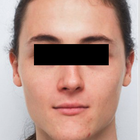
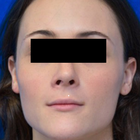
Front view
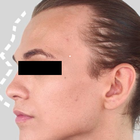
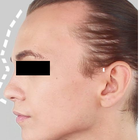
Half-side view
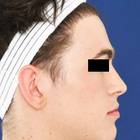
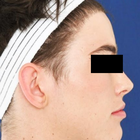
Full-side view
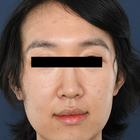
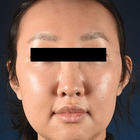
Front view
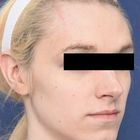
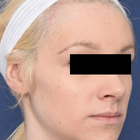
Half-side view
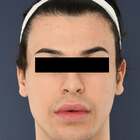
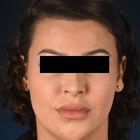
Front view
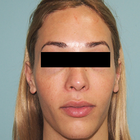
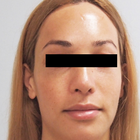
Front view
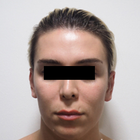

Front view
WHY US?
At Medijump, we're making medical easy. You can search, compare, discuss, and book your medical all in one place. We open the door to the best medical providers worldwide, saving you time and energy along the way, and it's all for FREE, no hidden fees, and no price markups guaranteed. So what are you waiting for?

Free

Best Price

Widest Selection

Risk-Free
What you need to know about Facial Feminization Surgery (FFS) in Israel
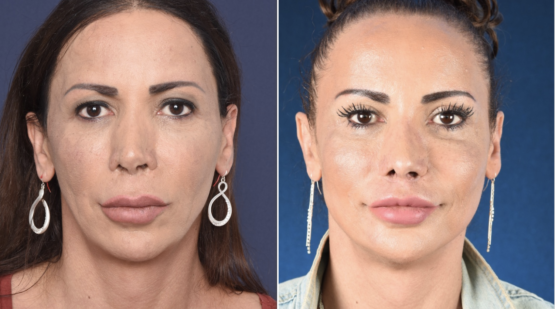
Facial Feminization Surgery, often abbreviated as FFS, is an extensive surgical process designed to modify masculine facial characteristics into a more feminine appearance. The procedure comprises several surgeries including rhinoplasty, forehead recontouring, and jaw and chin modifications. FFS is frequently sought after by transgender women desiring to more authentically express their gender identity. Any potential patient is advised to consult with a licensed surgeon to personalize the surgical plan according to their specific needs and aspirations.
Facial Feminization Surgery (FFS) usually necessitates an exhaustive pre-procedure assessment. This involves a thorough review of the patient's medical history, a complete physical examination, a psychological evaluation, and possibly facial x-rays. The surgeon will also discuss the aesthetic objectives, benefits, risks, and potential complications of the surgery with the patient. A collaborative decision-making approach is used to ensure patient safety and contentment following the procedure.
In this before and after example, the patient underwent Rhinoplasty, Chin recontouring, Jaw reduction, Lip lift, and eyelid surgery (blepharoplasty). The photo is taken 4 months post-op.
What is the cost of Facial Feminization Surgery (FFS) in Israel?
Various elements such as the surgical complexity, hospital stays, anesthesiologist costs, and surgeon's fees influence Facial Feminization Surgery (FFS) pricing in Israel. On average, possible charges vary from $20,000 up to $50,000. A detailed price breakdown from your healthcare provider will provide an exact view of the cost details.
The value of the procedure does not necessarily need to compromise the quality and standards of the surgery. Gain clarity about what components are inclusive and exclusive in the overall cost to understand thoroughly what your payment encompasses. Insurance firms usually do not cover aesthetic procedures, hence comprehensive knowledge and prudent financial preparation will streamline the procedure and make the Facial Feminization Surgery (FFS) a valid investment in enhancing your self-perception and assurance.
What does a Facial Feminization Surgery (FFS) Procedure Involve?
Facial Feminization Surgery (FFS) entails a range of tailored techniques aimed at personal needs with a focus on feminizing and gently modifying the facial structure. These techniques may encompass forehead reshaping, adjustments to the jaw and chin, rhinoplasty, facelifts, and other unique enhancements. The rising trend in health and well-being-oriented medical research is mirrored in personalized surgery schemes, ensuring the outcomes are attuned to individuals.
Normally, a care center will execute an in-depth consultation process to comprehend your aesthetic aspirations and draft a surgical blueprint. This evaluation is essential in harnessing the maximum advantages from the Facial Feminization Surgery (FFS). Ensuring the health and safety of the patient, a pre-operative assessment, encompassing a review of physical health and mental well-being, is a crucial measure.
How Long Should I Stay in Israel for a Facial Feminization Surgery (FFS) Procedure?
During the planning phase for Facial Feminization Surgery (FFS), considering the necessary time for the operation and subsequent recovery is vital, in order to ensure a seamless return to standard duties. The length of your Israel visit is heavily influenced by the surgery’s intricacy, your personal health condition, and your recovery speed. Generally, a timeframe of one to two weeks is advised before getting back to everyday activities.
However, the precise timeline can differ considerably, with follow-up meetings commonly arranged during your stay. These are paramount for evaluating your progress and identifying any possible surgical complications. This window also presents a chance for practising respiratory exercises and other preventive health methods to expedite a seamless recovery. Adherence to all the instructions given by your surgeon during this term is critical, as this significantly influences the success rate of the Facial Feminization Surgery (FFS).
What's the Recovery Time for Facial Feminization Surgery (FFS) Procedures in Israel?
Recovery from Facial Feminization Surgery (FFS) can differ among individuals, largely depending on the procedure's scope and the patient's overall health. Usually, patients require approximately six weeks of recuperation before they can engage in strenuous activities. During this time, individuals may experience swelling, bruising, and discomfort related to the surgery, but these symptoms typically diminish over time.
Getting plenty of rest, maintaining adequate hydration, and consuming a balanced diet can aid in accelerating recovery. It's vital to strictly follow the healthcare provider's advice regarding prescribed medicines, care of surgical wounds, and limitations on activities to prevent complications and promote healing. Keep in mind that health and well-being extend beyond the surgical procedure itself, so comprehensive aftercare is essential for successful outcomes.
What sort of Aftercare is Required for Facial Feminization Surgery (FFS) Procedures in Israel?
Appropriate aftercare is a vital component of successful Facial Feminization Surgery (FFS) and significantly influences the recovery process. It may include prescribed medications, regular medical check-ups, custom-made nutrition plans, and effective weight management. The recovery phase could span several weeks, during which adequate rest is paramount for a seamless recuperation.
Patients are often advised by their surgeons to temporarily abstain from rigorous physical activities and to maintain a healthy lifestyle. The latter should incorporate balanced nutrition, staying hydrated, taking supplements, and ensuring proper sleep and mental health management. It's important to note that adherence to the prescribed aftercare plan and attendance at follow-up visits are key to tracking improvements and promptly addressing any potential complications.
What's the Success Rate of Facial Feminization Surgery (FFS) Procedures in Israel?
Facial Feminization Surgery (FFS) is recognized as an extremely successful surgery that produces transformative and enduring outcomes. The success rate fluctuates depending on various factors, including the proficiency of the surgeon, the overall health of the patient, and the quality of care after the surgery. A majority of patients report high levels of satisfaction, citing increased self-confidence and an enhanced quality of life.
It's important to understand, however, that despite its high success rate, the procedure isn't without potential risks and complications. Complications like infections, scarring, and dissatisfaction with the aesthetic outcome are potential, though they are rare occurrences. Thorough pre-operative evaluations, skilled surgical hands, and comprehensive post-operative care significantly lessen these risks. Consequently, when selecting the most suitable protocol for your Facial Feminization Surgery (FFS), the guiding factors should be patient safety and satisfaction.
Check out this video for before and after images of FFS patients, you'll be amazed by some of the results made possible by this surgical procedure.
Are there Alternatives to Facial Feminization Surgery (FFS) Procedures in Israel?
Bear in mind that each person's needs and preferences are distinct, and surgical interventions might not be the most suitable route for everyone. There are other alternatives available for those who might be more inclined towards non-surgical solutions. Aesthetic treatments like injectable fillers, Botox, and others can simulate some effects of the Facial Feminization Surgery (FFS) on a temporary basis. However, cosmetic treatments of this kind typically necessitate ongoing sessions to preserve the sought after result.
Furthermore, some individuals might prefer to engage in psychological or behavioral therapies that encourage self-acceptance and a positive body image. Such therapies address the mental health components of self-image and gender dysphoria, offering a different perspective to surgery. Having open-ended discussions with healthcare providers to explore all the available options prior to making a decision is strongly advised.
What Should You Expect Before and After the Facial Feminization Surgery (FFS)?
Prior to undertaking Facial Feminization Surgery (FFS), patients participate in an in-depth consultation process. During this stage, surgeons evaluate the individual's health status, expectations, and motivations to design a treatment program that best meets their needs. Various health screenings may be conducted to verify the patient's physical suitability for the operation.
Post-procedure, initial weeks may bring about some degree of discomfort, swelling, and bruising, which will progressively decrease. Adequate post-procedure care can significantly improve recovery and the ultimate outcome of your Facial Feminization Surgery (FFS). It's crucial to maintain regular communication with your surgeon and promptly report any unusual symptoms. The goal is to ensure a successful surgical procedure followed by a rapid and smooth recovery, guiding you towards a more self-assured version of yourself.
What is the Preoperative Preparation for Facial Feminization Surgery (FFS) in Israel?
Preparing for Facial Feminization Surgery (FFS) entails addressing both physical and mental aspects to ensure successful surgery and recuperation. Patients undergo comprehensive evaluations involving various diagnostic tests to determine their overall health and suitability for the surgery. Moreover, patients may need to halt tobacco use, moderate alcohol consumption, and adjust certain medications—especially those affecting blood clotting—as these factors could disrupt both the surgical process and healing.
In addition, therapy sessions may be suggested to assist individuals in managing the psychological implications of such a life-changing procedure. A balanced diet is also pivotal in enhancing the body's healing capacity; adopting a healthy eating regimen, such as the Mediterranean diet, and considering suitable nutritional supplements can optimize preoperative preparation. Emphasizing mental wellbeing is another vital aspect of the journey, and implementing stress management strategies can prove beneficial during this period.
What are the Long-term Implications of Facial Feminization Surgery (FFS) in Israel?
Facial Feminization Surgery (FFS) is often viewed as a long-term commitment that yields lasting and significant transformations. It significantly enhances self-image and self-confidence, leading to a substantial improvement in life quality. Though the changes induced by the surgery are generally unchanging, sustaining a consistent weight and adopting a healthy lifestyle are vital in preserving the results.
It's important to bear in mind that adjusting psychologically is an integral aspect of such a transformative experience. Individual or group therapies can aid in navigating these changes, fostering deep-seated growth and self-understanding following the Facial Feminization Surgery (FFS). Always remember, the success of a procedure goes beyond the physical alteration—it also involves overall wellbeing, health, and a positive life perspective.
Whilst the information presented here has been accurately sourced and verified by a medical professional for its accuracy, it is still advised to consult with your doctor before pursuing a medical treatment at one of the listed medical providers
No Time?
Tell us what you're looking for and we'll reachout to the top clinics all at once
Enquire Now

Popular Procedures in Israel
Prices Start From $96

Prices Start From $111

Prices Start From $70

Prices Start From $16

Prices Start From $220

Prices Start From $28

Prices Start From $672

Prices Start From $275

Prices Start From $101

Prices Start From $556

Prices Start From $4,377

Recommended Medical Centers in Israel for Facial Feminization Surgery (FFS)

- Interpreter services
- Translation service
- Religious facilities
- Medical records transfer
- Medical travel insurance
- Health insurance coordination
- TV in the room
- Safe in the room
- Phone in the room
- Private rooms for patients available

- Interpreter services
- Translation service
- Religious facilities
- Medical records transfer
- Medical travel insurance
- Health insurance coordination
- TV in the room
- Safe in the room
- Phone in the room
- Private rooms for patients available

- Interpreter services
- Translation service
- Religious facilities
- Medical records transfer
- Medical travel insurance
- Health insurance coordination
- TV in the room
- Safe in the room
- Phone in the room
- Private rooms for patients available

- Interpreter services
- Translation service
- Religious facilities
- Medical records transfer
- Medical travel insurance
- Health insurance coordination
- TV in the room
- Safe in the room
- Phone in the room
- Private rooms for patients available

- Interpreter services
- Translation service
- Religious facilities
- Medical records transfer
- Medical travel insurance
- Health insurance coordination
- TV in the room
- Safe in the room
- Phone in the room
- Private rooms for patients available

- Interpreter services
- Translation service
- Religious facilities
- Medical records transfer
- Medical travel insurance
- Health insurance coordination
- TV in the room
- Safe in the room
- Phone in the room
- Private rooms for patients available

- Interpreter services
- Translation service
- Religious facilities
- Medical records transfer
- Medical travel insurance
- Health insurance coordination
- TV in the room
- Safe in the room
- Phone in the room
- Private rooms for patients available

- Interpreter services
- Translation service
- Religious facilities
- Medical records transfer
- Medical travel insurance
- Health insurance coordination
- TV in the room
- Safe in the room
- Phone in the room
- Private rooms for patients available

- Interpreter services
- Translation service
- Religious facilities
- Medical records transfer
- Medical travel insurance
- Health insurance coordination
- TV in the room
- Safe in the room
- Phone in the room
- Private rooms for patients available

- Interpreter services
- Translation service
- Religious facilities
- Medical records transfer
- Medical travel insurance
- Health insurance coordination
- TV in the room
- Safe in the room
- Phone in the room
- Private rooms for patients available


